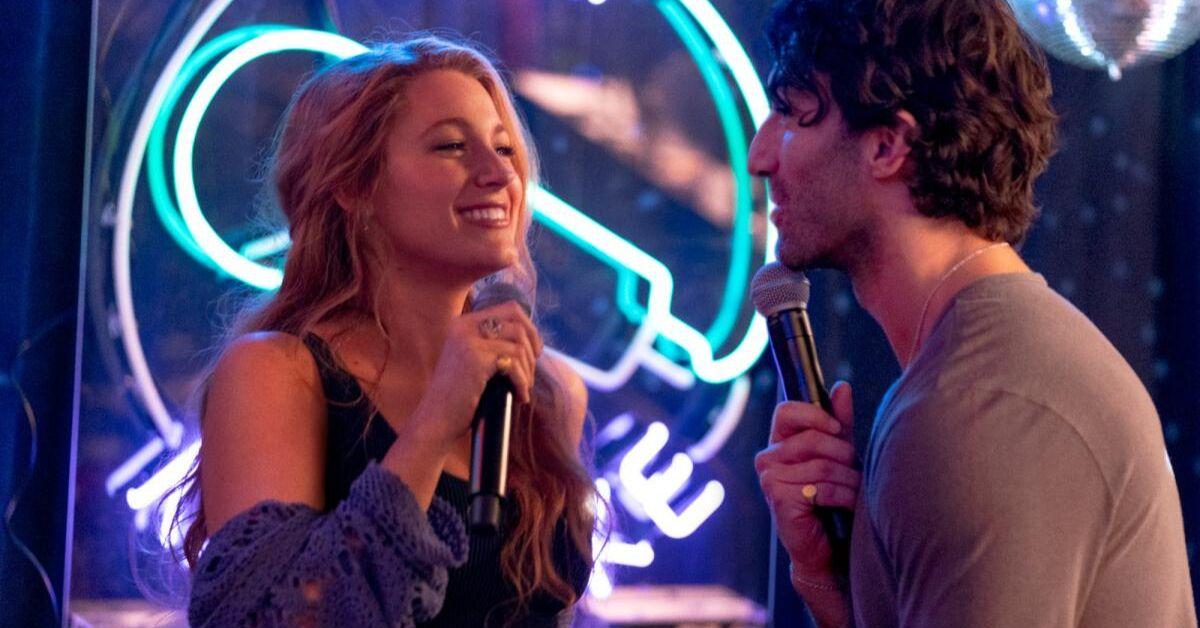By: Russ Matthews
Colleen Hoover’s beloved novel was a TikTok phenomenon that led to worldwide success for all those who may wonder why a romantic drama like It Ends With Us is getting so much media attention.
After its initial release in 2019, the story of florist Lily Bloom (Blake Lively) managed to have a resurgence of popularity on social media, led the book to become a worldwide bestseller and eventually made into a feature-length film. The project benefits from the media hype surrounding Deadpool and Wolverine’s star, Ryan Reynolds, who is married to Lively and even gave her a cameo performance in his Marvel project.
Hoover’s story is directed by and stars Justin Baldoni (Clouds) along with the central beauty, Blake Lively, who leads this love triangle in the affluent world of Massachusetts. She grew up in the home of an influential politician who secretly abused his wife and her mother. As Lily attempts to come to terms with her personal life, the aspiring botanist turns her interest to a schoolmate living rough in an abandoned house in her neighbourhood. Atlas (Alex Neustaedter/ Brandon Sklenar) left his abusive home life but still wants to complete high school.
As their friendship turns to romance, the pair are eventually separated by another violent act. They lose touch for years until they happen upon one another in Boston. She has become a successful florist and is married to neurosurgeon Ryle Kincaid (Baldoni). Atlas has become a celebrated restaurateur. When things turn abusive in her marriage, Lily must decide whether to leave Ryle or find solace in the arms of her high school love.
It Ends With Us has a built-in audience of those who have fallen in love with the novel inspired loosely by the author’s parents’ story. The messaging is essential as our society has a heightened awareness of domestic abuse and hopes to motivate people to address this topic. Yet, as this statement is wrapped in a romantic drama, some may ask if this is more of a statement piece as opposed to entertainment. This query must be left to the fanbase that has driven the book sales and desired to see this story on screen. In the end, Colleen Hoover’s messaging will hit home for all who attend despite the less-than-entertaining aspects of the movie.
There has been some controversy around the casting of Blake Lively as the central character. Still, she does carry the film well and is convincing as a woman who is successful while struggling with her personal relationships. Isabela Ferrer was a brilliant choice for casting as the younger Lily as she managed to take on the persona of her older self and all of Lively’s characteristics. Justin Baldoni did an admirable job in the dual roles of star and director. Unfortunately, Brandon Sklenar’s role seemed to be forgotten as his younger self had more screen time. If there was a standout in the cast, Jenny Slate stole every scene and brought the humour to an otherwise serious screenplay. The script is where the film became melodramatic and predictable, as it was saddled with Hoover’s original story, which became less romantic as things progressed and turned into a cautionary tale of domestic abuse.
Reel Dialogue: How abuse on any level is wrong
Abuse on any level should be confronted and stopped. With all that is occurring in the media about violence towards women, It Ends With Us does provide an open door to this topic.
Within the Christian heritage, the Bible condemns the abuse of anyone, especially women and children, from Genesis to the writing of Paul in Ephesians. Those who believe in God’s words should consider whether this film is worth viewing for their curiosity or entertainment. This reality begs the question within this social climate of how this story can truly entertain audiences and rightly serve to educate.
Where to go if you are experiencing domestic abuse: Mission Australia
Article supplied with thanks to City Bible Forum.
All images: Movie publicity
About the author: Russ Matthews is a film critic at City Bible Forum and Reel Dialogue. He has a passion for film and sparking spiritual conversations.

